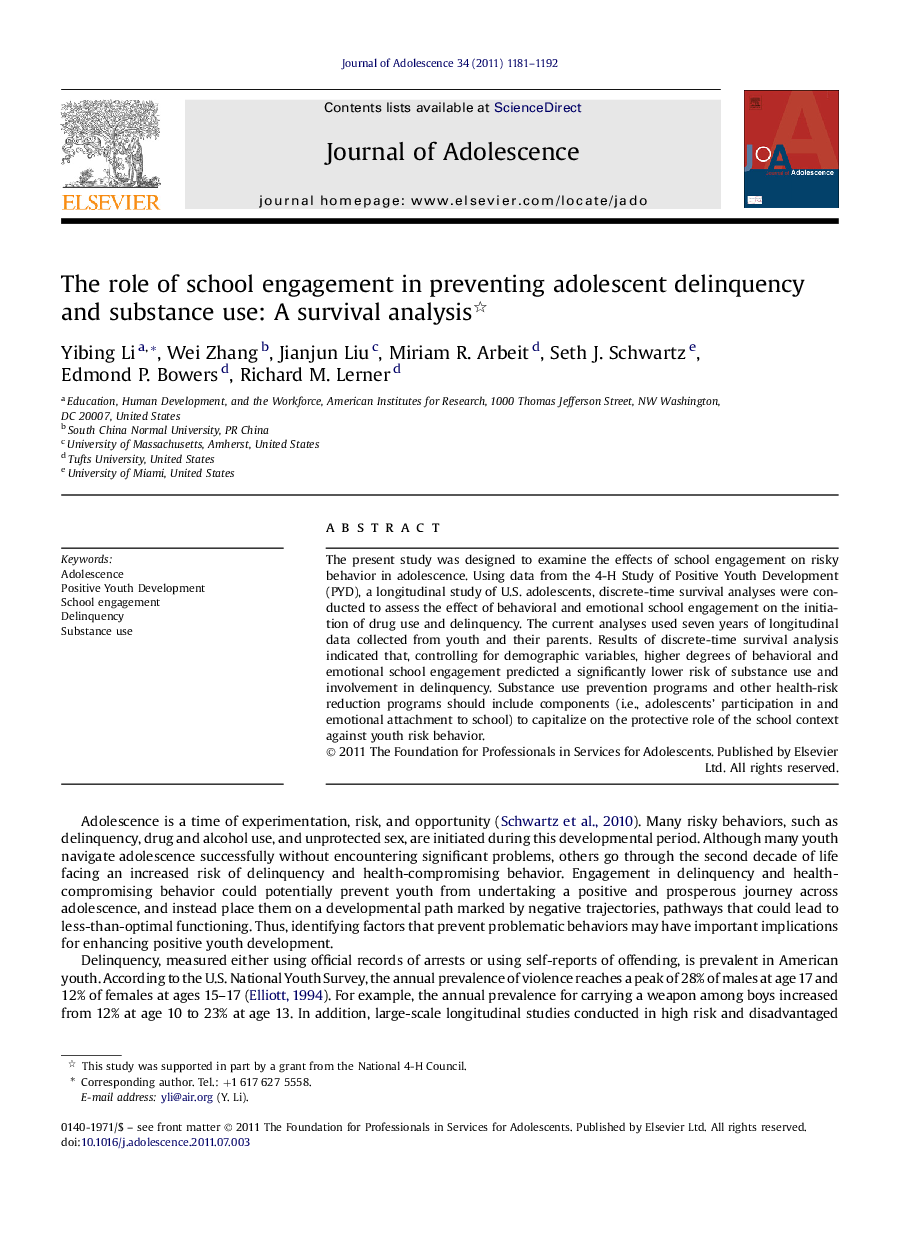| Article ID | Journal | Published Year | Pages | File Type |
|---|---|---|---|---|
| 880908 | Journal of Adolescence | 2011 | 12 Pages |
The present study was designed to examine the effects of school engagement on risky behavior in adolescence. Using data from the 4-H Study of Positive Youth Development (PYD), a longitudinal study of U.S. adolescents, discrete-time survival analyses were conducted to assess the effect of behavioral and emotional school engagement on the initiation of drug use and delinquency. The current analyses used seven years of longitudinal data collected from youth and their parents. Results of discrete-time survival analysis indicated that, controlling for demographic variables, higher degrees of behavioral and emotional school engagement predicted a significantly lower risk of substance use and involvement in delinquency. Substance use prevention programs and other health-risk reduction programs should include components (i.e., adolescents' participation in and emotional attachment to school) to capitalize on the protective role of the school context against youth risk behavior.
